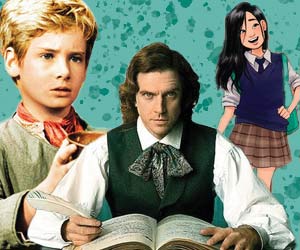Mister Pip
Select Format
Select Condition 
Book Overview
In a novel that is at once intense, beautiful, and fablelike, Lloyd Jones weaves a transcendent story that celebrates the resilience of the human spirit and the power of narrative to transform our lives. On a copper-rich tropical island shattered by war, where the teachers have fled with most everyone else, only one white man chooses to stay behind: the eccentric Mr. Watts, object of much curiosity and scorn, who sweeps out the ruined schoolhouse...
Customer Reviews
Charming and shocking and very human
Reviews by Dr. Thomas Moore, author with Alphar: August, 2007
Mister Pip
The Power of Storytelling
"There Is No Frigate Like A Book"
Mister Pip Mentions in Our Blog

We’ve been having fun exploring the "Multiverse" of selected classics, by curating a collection of inventive adaptations. So far, we’ve featured installments on Alice in Wonderland, the Brontës, The Wizard of Oz, and Pride and Prejudice. Here we offer a collection of ten imaginative takes on Charles Dickens.




